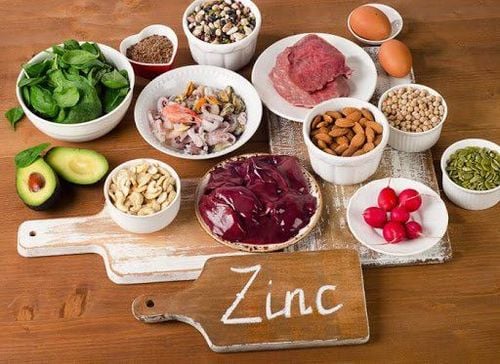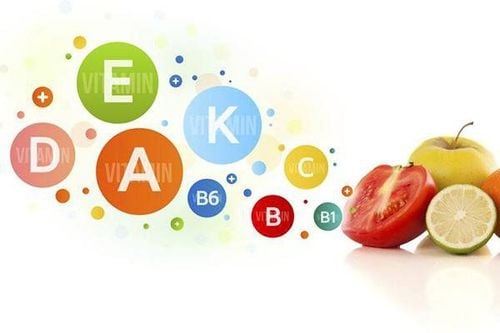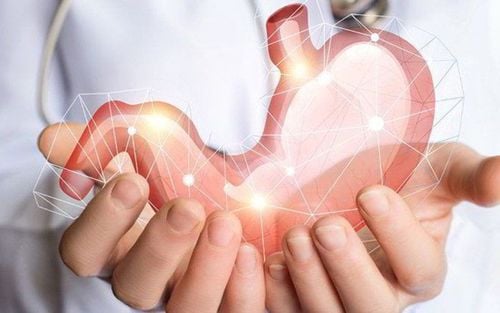Eggs belong to the group of foods that provides many nutrients, especially protein with high biological value. Furthermore, the nutritional composition of eggs is very easy to absorb. The protein in eggs has a 100% absorption rate, equivalent to the protein found in milk.
1. Nutritional Composition of Eggs
The nutrient composition of eggs, especially chicken eggs, packs 13 different vitamins and nutrients in each serving. And with just 310 kilojoules (or 74 calories) in each egg, egg is one of the healthiest foods you can eat.
Eggs contain essential nutrients for the healthy growth and development of children and are one of the most nutritious foods that women can consume during pregnancy.
They are a perfect source of protein, containing all 9 essential amino acids needed to meet your body's needs. Plus, they are a natural source of important nutrients, including omega-3 fatty acids, vitamins A, D, E and B12, antioxidants and choline.
2. When should kids eat eggs?
Every parent wants to make sure their child grows up healthy and happy. However, parenting can be overwhelming, with conflicting advice about what is and isn’t good for children.
There are many myths and misconceptions about whether it’s good for children to eat eggs, whether it’s good for children to eat a lot of eggs, and at what age parents should start introducing whole eggs.
Eggs are a great source of essential nutrients for healthy growth and development. They are packed with vitamins and minerals and provide a source of protein, choline, and essential fatty acids. You should introduce whole eggs into your child’s diet in the first year of life – around six months, but not before four months.
These guidelines are the same for all children, even those at high risk of food allergies, as studies have shown that introducing eggs in the first year helps children develop a tolerance to eggs.
Trắc nghiệm dành riêng cho người mắc đái tháo đường: Chế độ ăn của bạn đã hợp lý chưa?
Người bị bệnh đái tháo đường cần phải quan tâm nhiều hơn đến cách tính toán khẩu phần ăn sao cho phù hợp với nhu cầu và tình trạng sức khỏe. Nếu chưa rõ, bạn có thể tìm hiểu kỹ hơn thông qua bài trắc nghiệm ngắn sau đây.
3. Benefits of eggs in children's diet
Packed with nutrients, including 11 different vitamins and minerals, eggs provide many of your child’s nutritional needs. Their affordability and versatility make them a convenient and nutritious meal option for busy parents
Eggs contain choline – a nutrient that contributes to healthy brain development. Studies show that pregnant and breastfeeding women who eat eggs are more likely to meet their choline needs.
Eggs are an excellent source of iron, protein, essential fatty acids, vitamins A, D, E, and B12. Eaten as a high-protein breakfast, they can boost your child’s satiety levels and reduce hunger throughout the busy school day (thus reducing their need to snack on unhealthy, sugary, high-fat foods).
High in protein, eggs will support your child’s growth and development. The Australian Dietary Guidelines recommend 14 grams of protein per day for children aged 1-3 years and 20 grams per day for children aged 4-8. One egg contains about 6 grams of protein, providing almost half the recommended daily intake for toddlers and nearly a third of the recommended daily intake for older children.
4. Egg allergy in children
Egg allergy is relatively common in children, affecting 9% of those under 4 years old. Many children with egg allergies are allergic to raw eggs but can tolerate baked or cooked eggs, and most will outgrow the allergy by the age of 4.
To avoid any complications, you may consider gradually introducing cooked eggs into your child's diet, under the guidance of your healthcare provider, to monitor for potential reactions
Symptoms of egg allergy that may appear include:
- Skin - rash, eczema, swelling, or redness.
- Gastrointestinal - nausea, possibly vomiting, or diarrhea.
- Respiratory - runny nose, wheezing, or difficulty breathing.
5. How much egg should children consume?
Although eggs are very good for children, it does not mean that children who eat a lot of eggs will have many health benefits. Because eggs have many nutrients, the fat content in eggs is relatively high, so it can make children quickly get full, have indigestion, and even cause digestive disorders.
Depending on the age group of the child, the number of eggs used to feed children will be different:
- For children from 6 to 7 months old, children should be fed about 1⁄2 egg yolk per meal and can be fed 2 to 3 times per week
- For children from 8 to 12 months old, children should be fed about 1 egg yolk per meal and can be fed 3 to 4 times per week
- For children from 1 to 2 years old, children should be fed both egg whites and egg yolks per meal and can be fed 3 to 4 eggs per week
- For children from 2 years old and up, if they like to eat eggs, they can be fed one egg per day.

6. Best way to cook eggs for children
While eggs are a nutritional food, their preparation significantly impacts nutrient absorption. You should not use raw eggs to feed children. The best way to prepare eggs for children is to cook them thoroughly to prevent infection. Moreover, bacteria that can cause food poisoning are contained in the genital tract of chickens, so both the inside and outside of chicken eggs can be contaminated with bacteria that cause illness in children, especially salmonella bacteria. This bacteria causes food poisoning if the processing is done incorrectly. Additionally, egg whites contain some substances that counteract vitamin H - biotin, which hinders the absorption of nutrients, especially vitamin H. Vitamin H belongs to the essential vitamins that are indispensable in using protein and carbohydrates. It is also necessary for the normal development of children's bodies. Therefore, eating raw or lightly cooked eggs has many health risks.
Cooking eggs by combining oil or fat to create fried eggs over high heat can cause the outside to be fried while the inside is not fully cooked. At that time, the burnt egg white will be difficult to absorb and, at the same time, affect and destroy water-soluble vitamins such as vitamins B1 and B2, and the egg yolk will not be sterilized. Therefore, when using this cooking method, the eggs must be fried or fried over a small flame for a longer time to fully cook the egg yolk.
If you eat raw eggs, the absorption and digestion rate can only reach 40%. However, boiled eggs can absorb up to 100%, fried eggs that are cooked until cooked have an absorption rate of 98.5%, and fried eggs that are cooked too long can only absorb 81%, ...
How to boil eggs to ensure that nutrients, food hygiene, and safety are preserved: Put the eggs in with water and then put them in a pot to boil gradually. When the water boils, simmer for about 2 minutes and then turn off the stove. However, leave the eggs in hot water for about 5 minutes after cooking. This way, the eggs will be just cooked, the yolk will not be overcooked and will be easier to absorb. While boiling the eggs, you can add a little salt to keep the eggs from breaking.
In addition, you should be aware that eggs that have just been taken out of the refrigerator should not be boiled immediately, nor should they be soaked in hot water or boiled over too high a heat, as these things can cause the eggs to break.
Preparing eggs for children according to their age:
- For children from 6 to 12 months old: Children should eat eggs with porridge. How to cook egg porridge: Cook the porridge until done, then add the eggs. When the porridge is cooked, beat the egg yolks with the chopped vegetables, then beat the eggs and vegetables well. When the porridge boils, add the egg and vegetable mixture to the porridge and stir quickly and evenly until the porridge boils. Note that the porridge and eggs should not be cooked too much.
- For children from 1 to 2 years old: You can eat egg porridge and do the same as cooking porridge for children from 6 to 12 months old.
- For children from 2 years old and up: You can prepare eggs by feeding your children egg porridge, boiled eggs, fried eggs with meat and vegetables, eggs in tomato sauce, fried eggs...
To arrange an appointment, please call HOTLINE or make your reservation directly HERE. You may also download the MyVinmec app to schedule appointments faster and manage your reservations more conveniently.













